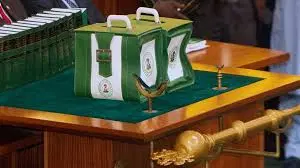
The Federal Government and 22 states across Nigeria have allocated a total of N6.131 trillion for education in their 2025 budgets, which represents a modest 9.27% of the overall N66.111 trillion planned for next year. This allocation falls significantly below the recommended benchmarks set by both national and international education bodies, highlighting a critical underfunding of the sector.
The United Nations Educational, Scientific and Cultural Organisation (UNESCO) advocates that governments allocate at least 26% of their budgets to education. Similarly, the World Bank recommends a range of 20 to 30%, while Nigeria’s own National Policy on Education mandates a minimum of 26% of both federal and state budgets be directed towards education.
As of now, 33 out of Nigeria’s 36 states have released their budget proposals for 2025, with Imo, Kwara, and Rivers yet to announce theirs. Of the 33 states, only 22 have disclosed their planned education spending, either through official government websites or budget speeches delivered by their respective governors in state assemblies.
Among the 22 states, four states have allocated over 26% of their budgets to education, meeting both UNESCO and Nigeria’s benchmarks: Enugu (32.99%), Kano (31%), Jigawa (26.4%), and Kaduna (26.14%). A few other states have met the World Bank’s minimum recommendation of 20%, including Abia (20%), Nasarawa (20.43%), Oyo (21.4%), and Sokoto (25%).
However, the education sector’s allocation remains especially low in other states. The Federal Government, with an allocation of just 7.08%, falls far below the global expectations, as do states like Lagos (6.93%), Delta (6.89%), and Bayelsa (6.83%). These figures suggest a significant disparity in the prioritization of education, raising concerns about the future of Nigeria’s educational system and its capacity to address critical challenges like infrastructure, teacher training, and equitable access for all students.
The underfunding of education, despite the country’s aspirations for economic growth and development, underscores the need for greater investment in human capital to ensure a sustainable future for Nigeria’s youth. The gap between the recommended allocations and the current spending highlights an urgent need for policymakers to re-evaluate their budget priorities in the coming years.
Comments